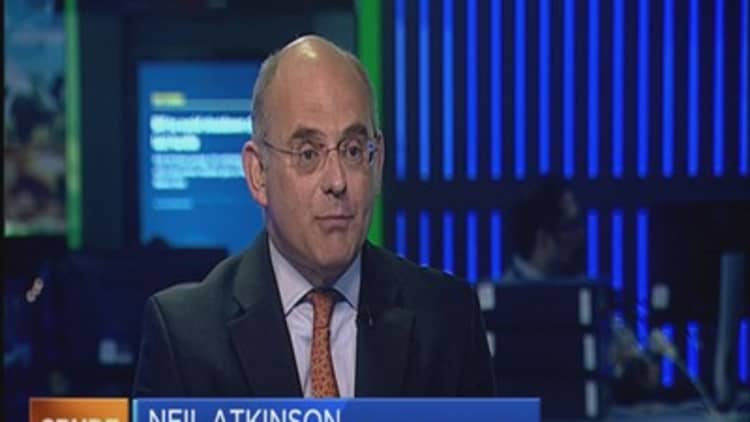
As oil prices struggled to hold onto this week's gains, investors are obsessed with pinpointing crude's next move—and there's hopes the worst might be over.
"We might have hit the bottom," Neil Atkinson, head of analysis at Lloyd's List Intelligence, told CNBC Wednesday. "Simply because the Brent and WTI price have both been stuck in the mid to upper $40s since about the beginning of August (aside from Black Monday period). They haven't really gone anywhere, a little bit up, a bit down."
Both Brent crude and WTI Crude remain below $50 per barrel, sharply below the levels above $100 seen prior to the slump that began in June 2014.
At the end of 2015's third quarter, WTI crude closed down over 24 percent, with ongoing supply and demand imbalances worsened by the economic slowdown in China and accompanying financial markets fears. The three months from July to September marked WTI's worst quarterly performance since 2014's fourth quarter, when it lost over 40 percent.
However, Atkinson forecast that the supply-demand imbalance would soften during the remainder of 2015.
On the supply side, he said that U.S. oil production seemed to have peaked in June at 9.6 million barrels a day. Since then, production has come down slightly, with the U.S government announcing Wednesday that oil production was now just over 9 million barrels.
Meanwhile, global demand growth prospects are being revised upwards, which Atkinson attributed partly to investors' reaction to the lower prices seen during the past year.
"We've got falling supply from the non-OPEC group of countries, rising demand growth from around the world, not least of course from the United States – bit of uncertainty about China," he said.
"So we may well see this rebalancing of the oil market, which people have been looking forward to for some time, might now finally be underway."
Atkinson added that OPEC (the Organization of the Petroleum Exporting Countries) members were "hanging in there for better days," waiting for when the market rebalanced and demand growth picked up.
Geopolitical rumbles?

On Wednesday, Russia launched its first round of air strikes on Syria, leading to debate as whether or not this might impact oil prices.
"Russia's military intervention in the Syrian conflict has increased the geopolitical risks, which is giving tailwind to the prices," Carsten Fritsch, a Commerzbank analyst, told Reuters.
However, Atkinson argued that oil prices had been barely affected by the multi-year long Syrian conflict.
"Throughout the whole of the Syrian conflict – which has been going on for five years now – it's influence on the oil markets has actually been essentially zero," he said.
"Syria was a significant oil producer but not that important, and I don't think today's rise in the oil price has got that much to do with the Russian actions. Perhaps a little bit, yes."
—By CNBC's Alexandra Gibbs, follow her on Twitter @AlexGibbsy.




